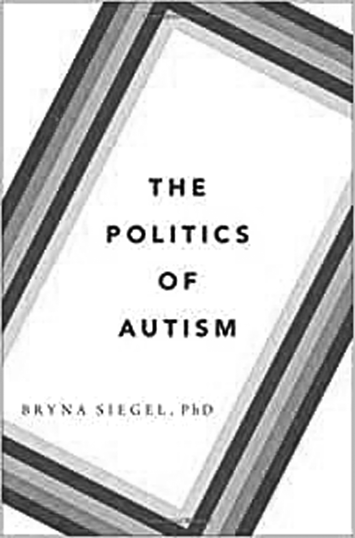
Siegel has written widely on the education of children with autism and has studied and worked with leading autism theorists in the USA, such as Eric Schopler and Ivar Lovaas. Her aim was to write a book on the politics of autism because discourse on autism is ‘vulnerable’ to ‘scam artists’, bad educators and clinicians who do not fully understand the condition. The main argument of the book is that the politics of autism in the USA has ‘left behind the real needs of most individuals and families living with autism’.
The first two chapters cover the increase in the diagnosis of autism. Siegel argues that this increase was largely a result of expanding diagnostic criteria and changing diagnostic practices. The third chapter considers ‘the psychiatric diagnosis industry’ and psychiatric validity. She suggests that all childhood neurodevelopmental disorders should be classed as ESSENCE (early symptomatic syndromes eliciting neurodevelopmental clinical examination), building on the work of Christopher Gillberg. In her analysis, Siegel fuses a radical social constructivist position with a clinical pragmatic approach; an interesting stance that she does not interrogate fully. Her work is useful in that she advocates new clinical approaches in response to historical and social analysis. This is innovative and interesting, although it would have been significantly improved through an engagement with wider historical and sociological work by Gil Eyal, Chloe Silverman, Madjia Holmer Nadesan, Ian Hacking and others.
In chapter 4, she argues that inclusive education has become a ‘civil rights issue’ rather than one that considers the child's best interests. She suggests that changes in the 1970s that ensured education for all pupils led to major improvements in educational techniques aimed at children with autism among others, although she laments that many children never get to benefit from them because of the growing trend to educate children with autism in mainstream classes. She also makes some very candid statements such as ‘much of the money spent on implementing educational plans (IEPs) for mildly, moderately and severely intellectually disabled pupils with autism is a waste of money’. Subsequent chapters cover health economics, alternative medicines, the ‘vaccine wars’ and genetic research, pointing out that parents need more help in navigating claims about intervention and treatment efficacy from unreliable sources. She is widely critical of false claims on the internet.
The book includes fascinating examples from Siegel's professional life, concerning both policy changes that she has overseen and individuals with whom she has worked. Although Siegel's clinical expertise leads to interesting insight and discussion, the lack of engagement with the wider sociological and historical literature does mean that there are some factual errors, such as ‘the concept of “autism” did not exist before 1943’. Nevertheless, the book makes interesting observations. Seigel's work highlights the fact that there is much more that such historical, social and political analysis can offer to help current policy makers, psychiatric practitioners and others to think concretely about how to make effective changes to support individuals with autism. It suggests that now there is a greater need than ever for these disciplines to work together.






eLetters
No eLetters have been published for this article.